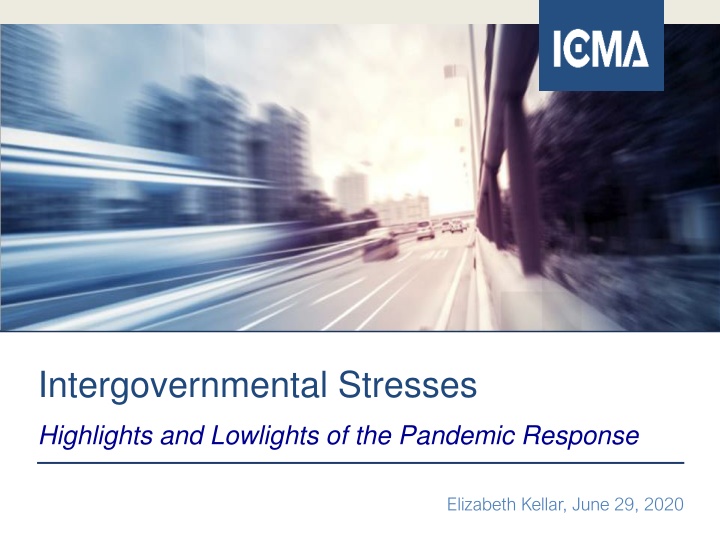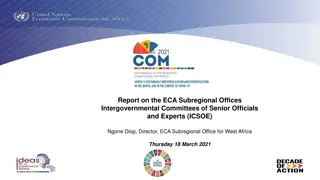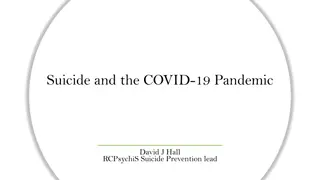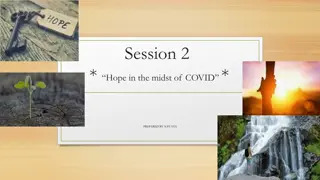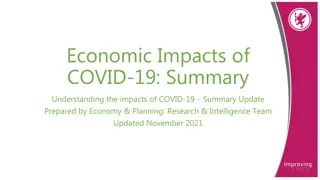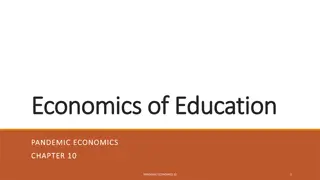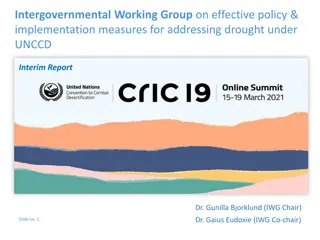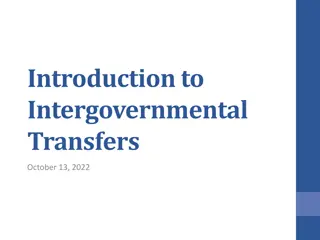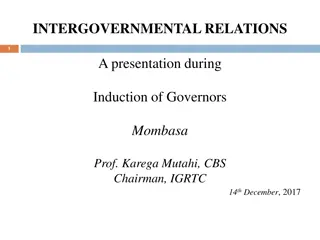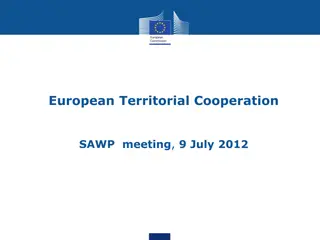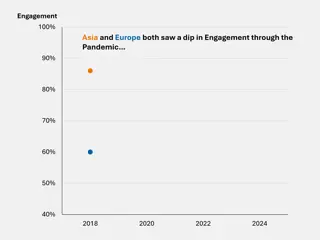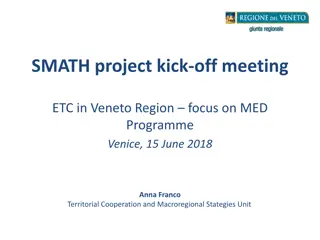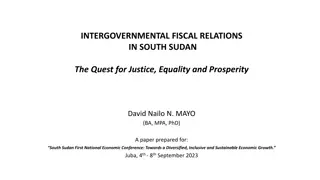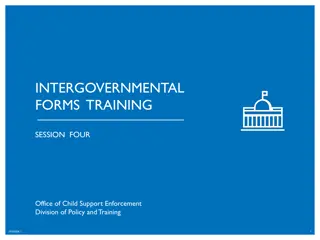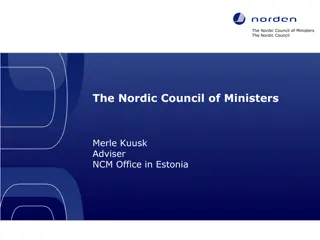Challenges and Impacts of the Pandemic on Intergovernmental Cooperation
The pandemic has led to severe economic repercussions for state and local governments, with significant revenue losses and job cuts. The CARES Act provided some relief, but issues like distribution challenges and documentation worries persist. The need for fiscal federalism is highlighted amid declining revenues and increased costs for cities and counties. Various revenue sources have been impacted differently, leading to widespread financial strains at the local level.
Download Presentation

Please find below an Image/Link to download the presentation.
The content on the website is provided AS IS for your information and personal use only. It may not be sold, licensed, or shared on other websites without obtaining consent from the author.If you encounter any issues during the download, it is possible that the publisher has removed the file from their server.
You are allowed to download the files provided on this website for personal or commercial use, subject to the condition that they are used lawfully. All files are the property of their respective owners.
The content on the website is provided AS IS for your information and personal use only. It may not be sold, licensed, or shared on other websites without obtaining consent from the author.
E N D
Presentation Transcript
Intergovernmental Stresses Highlights and Lowlights of the Pandemic Response Elizabeth Kellar, June 29, 2020
The COVID-19 Recession: Swift, Severe Impact During the Great Recession, state and local governments lost 720,000 jobs over several years. In April and May 2020, they shed 1,468,000 jobs. The International Monetary Fund predicts the current downturn will be the worst since the Great Depression in the 1930s. 2
CARES Act $150 billion for state and local governments For COVID-19 expenses only; not for revenue shortfalls Treasury guidance has lagged Direct aid only to cities and counties above 500,000 population Some states developed a plan to distribute to smaller hard-hit local governments Documentation worries
Revenue Losses Sharp declines in personal income and sales taxes Fees are down (including those designated for bonds) Property taxes are the most stable for now Overall, most states and local governments face a 10-20% decline in revenues
Cities and Counties $360 billion revenue loss for cities projected over the next 3 years; 74% of municipalities have already started making cuts (June 2020 NLC Survey of 1100 municipalities) Counties anticipate $114 billion Counties anticipate $114 billion in lost revenue from county-collected sales tax and local fees and an additional $30 billion in COVID-19 response costs.
Need for Fiscal Federalism FMAP percentage was more generous in Great Recession - 12% federal share v. 6.2% temporary federal share today Match still required for FEMA disaster assistance and other grants; Treasury issued an FAQ on 6/24 saying CARES funds can be used for FEMA match Mandate for states/locals to provide additional paid leave (Families First Act), but cannot claim tax credit like private sector Reimbursement for state and local revenue losses
Local Agency Revenue Impacts Vary by Source Property Tax Recreation and Fee Programs Income Tax Utility Users Tax, Franchise Payments Sales Tax, Hotel Tax, Property Transfer Tax Business License Tax 7
Intergovernmental Challenges Big 7 and national association coordination Direct, robust, flexible aid Issues Purchasing is 11% of GDP; CBO found state and local purchases have declined by $350 billion, accounting for 9% of total GDP decline More unemployed as furloughs and job cuts continue, with losses of teachers & front line responders Reducing infrastructure investments Reinstating advance refunding of bonds while interest rates are lower would help
Front Line Stresses Some states have allowed local governments to impose more public health restrictions; others have not Conflicting messages and politicization of public health; threats of violence, anti-semitic rhetoric Pressures to reopen; spikes causing reassessment Protests and rallies add to the unending crisis mode Preparing for natural disasters in a pandemic Operating a virtual workplace, returning to work, and seeking ways to reopen front line services safely Layoffs and furloughs
Whats Next ICMA planning survey on CARES Act, fiscal and other local government challenges Virtual conferences and events After action meeting of National Homeland Security Consortium to discuss lessons learned from initial pandemic response
